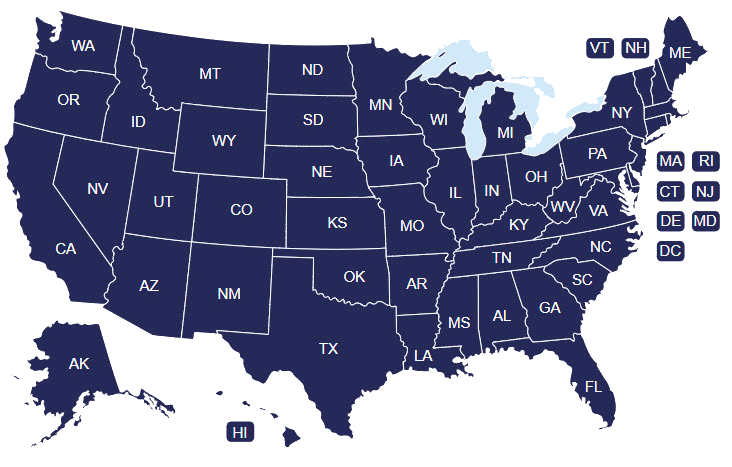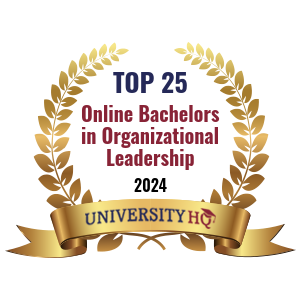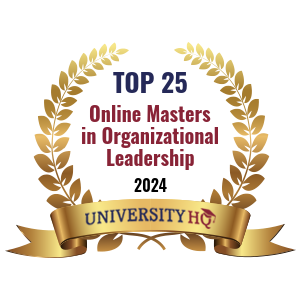Exploring Organizational Leadership
Organizational leadership involves the management and direction of people and resources within a company or institution. Understanding its core principles and theories can enhance your effectiveness in leading and inspiring teams.
What is Organizational Leadership?
Organizational leadership is the capacity to guide an organization towards its goals through effective management of people and resources. It includes creating a vision, developing strategies, and motivating individuals to achieve collective goals. Effective leaders are adaptable and skilled communicators, capable of addressing diverse challenges. In today's dynamic environment, organizations rely heavily on leaders who can foster innovation, encourage growth, and steer the organization toward sustainable success. This involves integrating traditional business management skills with a deep understanding of human dynamics and organizational behavior, making leadership both a science and an art.
Fundamental Principles of Leadership
Leadership principles are foundational guidelines that govern successful leadership practices. Key principles include vision, communication, and integrity. Vision is about setting clear and attainable goals for the organization. Communication involves sharing this vision and ensuring everyone is aligned with it. Integrity builds trust and respect, essential for a positive organizational culture. These principles guide leaders in decision-making and problem-solving. By consistently applying these principles, leaders not only enhance their effectiveness but also foster a cohesive and motivated team. Understanding these principles is essential for cultivating an inclusive and dynamic organizational environment that empowers members to perform at their best.
Leadership Theories and Models
Leadership theories provide frameworks to understand how leaders influence their teams and organizations. Some well-known theories include transformational leadership, which emphasizes inspiring and motivating employees to exceed expectations, and Situational Leadership, which advocates adjusting leadership style according to the situation and team's needs. Additionally, transactional leadership focuses on structure, rewards, and penalties. Each theory offers unique insights into how leaders can effectively manage and inspire others. By understanding and applying these theories, you can adapt to varying circumstances and improve team dynamics. Recognizing which model suits your organizational context can significantly enhance leadership effectiveness.
The Role of Education in Organizational Leadership
Education plays a vital role in shaping effective leaders, fostering skills necessary for navigating complex organizational environments. Through structured educational paths, you can gain the expertise needed to excel in various leadership roles.
Undergraduate and Graduate Degrees
Pursuing degrees such as an associates in organizational leadership, bachelors, or an MBA in organizational leadership opens doors to foundational and advanced leadership roles. Undergraduate programs often emphasize key leadership principles, teamwork, and problem-solving skills.
Undergraduate Degree in Organizational Leadership
Pursuing an undergraduate degree in organizational leadership provides you with a strong foundation in management and leadership principles. This degree often covers key areas such as team motivation, conflict resolution, and effective communication. These skills are essential in various industries, ensuring you are well-prepared for leadership roles.
A typical Bachelor of Arts or Bachelor of Science in this field requires the completion of around 120 credit hours. Programs usually include general education, core major courses, and elective courses, offering a balanced curriculum.
Graduates often find opportunities in various settings, from Fortune 500 companies to smaller businesses. Such diversity in application ensures that the skills you develop are adaptable and highly valued in the workforce.
Graduate Degree in Organizational Leadership
A graduate degree in organizational leadership offers you a pathway to develop critical leadership skills required for today's dynamic workplace. Programs typically integrate business, communication, and social sciences, ensuring a comprehensive learning experience.
Key Benefits
- Flexibility: Many programs offer online and asynchronous formats, enabling you to balance studies with work.
- Interdisciplinary Approach: Courses often cover a blend of topics, enhancing your ability to address complex organizational challenges.
Graduates can pursue roles that demand strategic decision-making and the ability to inspire and lead teams. Careers typically span industries such as business, education, and non-profits, allowing you to apply your skills in various professional settings.
Focusing on developing a solid foundation in leadership practices enables you to make impactful contributions to your organization’s success. Whether you seek to advance within your current role or transition into a new field, an advanced MBA leadership degree can be a vital step in your leadership journey.
Important Coursework in Leadership Degrees
Courses in leadership programs typically cover areas critical to organizational success. Key subjects often include strategic management, ethical leadership, and communication strategies. Programs may also delve into specialized topics such as change management, allowing you to navigate and implement organizational change confidently.
Through this coursework, you gain a robust understanding of both the operational and human aspects of leadership. This prepares you to foster cultures of collaboration and innovation, which are essential for driving organizational success and longevity. Effective coursework facilitates the development of a well-rounded leadership approach.
Continuing Education and Leadership Development
Staying current with trends and expanding your skills through continuing education is crucial. Opportunities like professional workshops, certifications, and leadership seminars support ongoing growth. Engaging in leadership development programs allows you to refine your skills, tackle contemporary challenges, and apply new strategies within your organization.
Continuing education is not only about acquiring new knowledge but also about networking with peers and other leaders. This can create opportunities for collaboration and the exchange of ideas, further enhancing your leadership capabilities. Prioritizing lifelong learning ensures you remain effective and relevant in evolving organizational landscapes.
Leadership Skills and Competencies
Developing strong leadership skills and competencies is essential for effective organizational leadership. This involves mastering communication, honing problem-solving abilities, inspiring innovation, and committing to ethical practices and social responsibility. Each of these areas contributes to a well-rounded leader who can guide their team towards success.
Effective Communication and Interpersonal Skills
Effective communication is a cornerstone of successful leadership. It involves clearly conveying ideas, listening actively, and fostering an open environment. Skills like empathy, patience, and flexibility enhance interpersonal interactions, enabling leaders to build trust and motivate teams. Good communicators not only share information but also inspire action and collaboration. In a collaborative culture, teamwork and empathy are vital, as they create a harmonious workplace.
Problem-Solving and Decision-Making
Problem-solving and decision-making are critical for navigating challenges and seizing opportunities. This involves evaluating situations, considering various solutions, and making informed choices. Leaders must balance analytical thinking with intuition, ensuring that decisions align with organizational goals. By fostering a culture of trust and communication, you can encourage your team to contribute ideas and solutions, enhancing collective problem-solving capabilities.
Innovation and Change Management
Innovation requires leaders to embrace change and inspire creativity among their teams. Change management skills help in implementing new ideas effectively, minimizing disruption and maximizing acceptance. Leaders should communicate a clear vision that supports innovation while being open to feedback and adaptable strategies. Encouraging a culture where ethics and corporate social responsibility are prioritized can also drive innovation, as teams feel empowered to explore new possibilities within a responsible framework.
Ethics and Corporate Social Responsibility
Ethical decision-making and corporate social responsibility are integral to sustainable leadership. Leaders must exhibit high ethical standards, which help in building trust with employees and stakeholders. By prioritizing corporate social responsibility, leaders ensure that business practices contribute positively to society and the environment. This can enhance reputation and foster loyalty. Embedding ethics into decision-making processes encourages transparency and accountability, essential components of effective leadership.
Leadership Roles in Various Industries
In organizational leadership, you often engage with a wide range of industries, each needing strong leaders to drive success. As a human resources manager, you can shape company culture and employee satisfaction. Roles in healthcare might include a medical and health services manager who enhances patient care and optimizes operations. If you prefer the nonprofit sector, you could become a non-profit administrator, focusing on maximizing social impact through effective program management.
Success in these positions requires excellent communication, interpersonal, and strategic planning skills. Different sectors demand unique expertise, but leadership fundamentals remain consistent across industries. Understanding these nuances is crucial. This adaptability is valuable, ensuring your leadership abilities are well-suited to varied organizational environments.
Executive Positions: From Manager to CEO
For those aiming to ascend the corporate ladder, opportunities abound in executive positions. Starting as a sales manager, you can transition into higher roles like operations manager, eventually reaching the pinnacle as a chief executive officer. These roles involve making strategic decisions that shape the company’s direction and ensure its long-term success.
Leadership, vision, decision-making, and problem-solving skills are critical in executive roles. You will often balance the demands of diverse stakeholders, including employees, customers, and shareholders. With experience, you can rise through the ranks, potentially leading the entire organization. Aspiring executives need to develop these competencies continuously to succeed.
Specialized Fields: HR, Sales, and Operations
Specializing in fields such as human resources, sales, or operations management can help you carve out a niche in organizational leadership. As a human resources manager, you will oversee recruitment, training, and employee relations. If sales are your passion, a career as a sales manager could involve creating sales strategies and analyzing market trends.
On the operational side, you’ll likely find positions like operations manager where you optimize processes and improve efficiency. These specialized fields demand a keen understanding of specific business functions, alongside exceptional leadership qualities. Your focus will be on developing relevant expertise to navigate industry-specific challenges, making your role essential to organizational success.
Analyzing Organizational Performance and Challenges
Understanding how organizations perform and the challenges they face is crucial for effective leadership. Focusing on enhancing productivity, addressing challenges with conflict resolution, and fostering talent development can lead to improved employee satisfaction and organizational success.
Measuring and Enhancing Productivity
To effectively measure productivity, you need precise metrics. Consider tracking performance indicators such as output per hour, quality rates, and project completion times. Utilizing tools like balanced scorecards can provide a comprehensive view of productivity levels.
Improving productivity often involves implementing new technologies and refining processes, which can lead to higher efficiency. Encouraging open communication and providing regular feedback are key strategies. This approach not only boosts productivity but also increases employee engagement.
Organizational Challenges and Conflict Resolution
Organizational challenges are inevitable. These can include issues such as resource constraints or discrepancies in management strategies. Conflict resolution becomes paramount in addressing these challenges. Encourage sessions that foster open dialogue to resolve conflicts amicably.
Adopting clear policies for conflict resolution can prevent disputes from escalating. Utilize negotiation and mediation techniques to achieve mutually beneficial outcomes. Engaging your team in finding solutions not only resolves conflicts but strengthens team cohesion, enhancing organizational performance.
Talent Development and Employee Engagement
Investing in talent development is essential for long-term success. This means offering training programs and mentorship opportunities that align with both organizational goals and employee aspirations. Personalized development plans to address individual strengths and areas for growth.
Employee engagement is closely tied to their satisfaction and effectiveness. Encourage participation and recognize contributions to reinforce a positive work environment. This approach not only retains talent but enhances organizational creativity and adaptability, ensuring a resilient workforce prepared to tackle future challenges.
Research and Innovation Resources for Leadership
Research in leadership explores how innovative practices can enhance organizational dynamics. You will learn about the emerging trends that are reshaping leadership strategies and the research methods used to deepen insights into leadership effectiveness.
Emerging Trends in Organizational Leadership
In recent years, leadership has evolved to address the challenges posed by rapid technological advancements and diverse workforce dynamics. A significant trend is the integration of technology-driven innovation, where leaders are adopting tools like artificial intelligence to enhance decision-making processes. Digital transformation initiatives are streamlining operations, making it vital for leaders to be tech-savvy and adaptive.
Additionally, there is a growing emphasis on leadership styles that foster inclusivity and creativity. Transformational leadership is gaining traction for its ability to inspire employees and cultivate an innovative workplace culture. You can explore more on this topic in studies such as those by ScienceDirect, which highlight leadership's impact on creativity and innovation. Understanding these trends can help you develop a modern leadership approach that is responsive to change.
Research Methods for Leadership
Research in leadership employs various methodologies to explore how leaders can effectively drive innovation. Qualitative methods, such as interviews and case studies, provide deep insights into leadership behaviors and their influences. These methods are instrumental in understanding complex leadership dynamics and organizational interactions.
Quantitative methods, like surveys and statistical analyses, are used to identify patterns and relationships between leadership practices and organizational outcomes. They allow researchers to evaluate the effectiveness of different leadership strategies systematically. A study from the Journal of Management and Organization examines the role of organizational support in fostering innovation, benefiting leaders aiming to optimize their strategic approaches. Embracing varied research methods can deepen your understanding of leadership efficacy in driving innovation.
State-By-State Leadership College Rankings
Select a State to Search Colleges & Universities

- Select a State
-
- Alabama
- Alaska
- Arizona
- Arkansas
- California
- Colorado
- Connecticut
- Delaware
- Florida
- Georgia
- Hawaii
- Idaho
- Illinois
- Indiana
- Iowa
- Kansas
- Kentucky
- Louisiana
- Maine
- Maryland
- Massachusetts
- Michigan
- Minnesota
- Mississippi
- Missouri
- Montana
- Nebraska
- Nevada
- New Hampshire
- New Jersey
- New Mexico
- New York
- North Carolina
- North Dakota
- Ohio
- Oklahoma
- Oregon
- Pennsylvania
- Rhode Island
- South Carolina
- South Dakota
- Tennessee
- Texas
- Utah
- Vermont
- Virginia
- Washington
- West Virginia
- Wisconsin
- Wyoming


